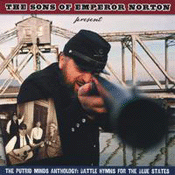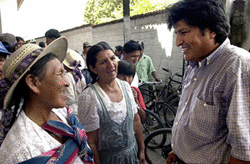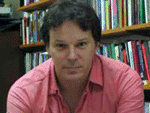
Battle Hymns for the Blue States
The Putrid Minds Anthology: Battle Hymns for the Blue States byThe Sons of Emperor Norton, is the only album ever produced that features Elvis, Mark Twain, Stephen Hawking and the little known historical figure, Joshua "Emperor" Norton. This 23 song anthology is not for the faint of heart. When listening, you laugh and think, "that's clever." Then reality comes into focus and you feel powerless in the face of the monstrous Bush administration. The band's humor has more than a bit of truth between the lines.




